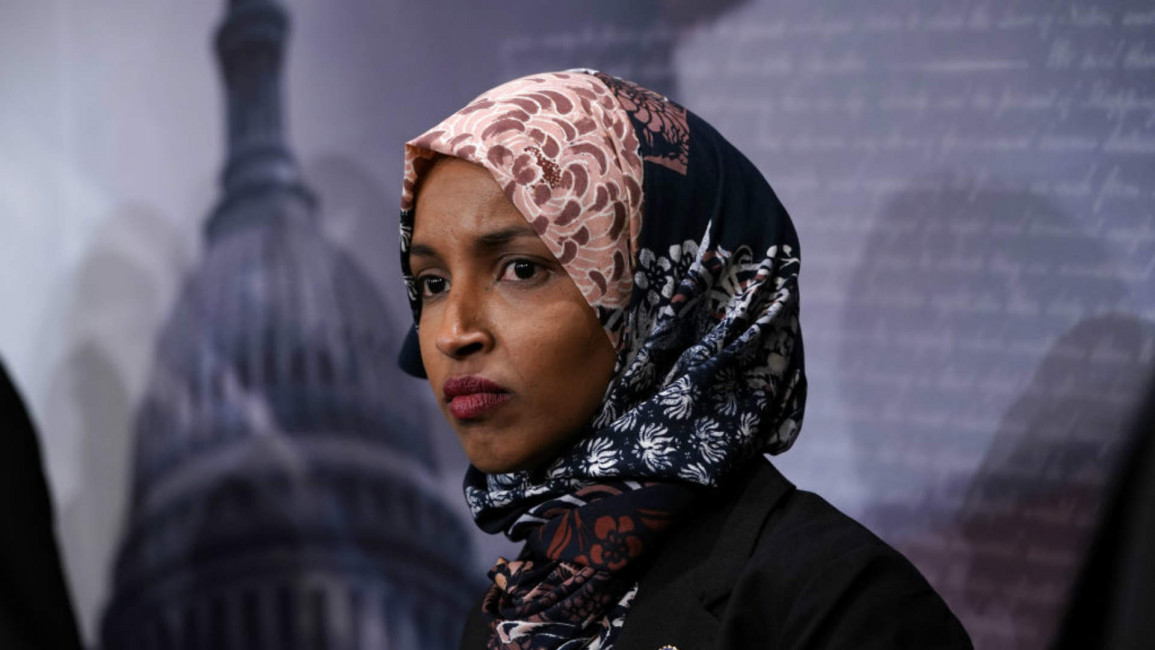
The Iranian opposition has been peddling Islamophobia to undermine the regime
The Iranian opposition in exile is a well-heeled, formidable behemoth. No authoritarian state in the world is contested by such a vocal, unflappable conglomerate of resistance forces as is the Islamic Republic. Belarus, China, Russia and Venezuela have outspoken critics, but none of these detractors are making a living through bad-mouthing the regimes they despise.
For the governments of Israel, Saudi Arabia and a handful of European countries sheltering and resourcing the Iranian opposition, it makes strategic sense to invest in amplifying the collective voices of disillusioned expatriates who have faced persecution at home and had to flee for their safety. They in turn build on their resentments and morph them into persuasive battalions of fighters ready to square up to a government facing mounting discontent at home and ballooning international isolation.
The ultimate goal of the opposition is regime change at any cost, whether its through foreign governments slapping further economic sanctions on Iran to the point that the civilian population will be squeezed to starvation, or encouraging military intervention to disintegrate a country of 85 million.
''Debating Islam and its contemporary characterisation in governance is an inalienable intellectual right. But being a standard-bearer of anti-Muslim fear-mongering is simply tantamount to apologising for violence and codifying the trauma inflicted on the people targeted.''
Iran possesses the second largest reserves of natural gas in the world, and the fourth largest reserves of crude oil. The financial commentary website 24/7 Wall St. identifies Iran as the fifth country in the world with the largest natural resources. Its young, educated human capital is a treasure not so many countries are entitled to.
Why shouldn’t the opposition fight tooth and nail for a share of these luxuries? However, the idea that they genuinely aspire to bringing democracy to Iran should always be taken with a pinch of salt because of how self-serving their posturing sounds. There’s little evidence they have sparked any meaningful democratic change in the recent four decades.
But the opposition has now pushed the boundaries in its campaign of defacing Iran and what the Iranians stand for, by running into the propagation of Islamophobia. That the Islamic Republic has hyped a rendition of political Islam that many Iranians hold accountable over their day-to-day challenges and regressions is a given.
But the opposition now seems to be unleashing an all-out assault on Islam, labelling the faith of 1.5 billion people as a backward, medieval ideology that suppresses women, is superstitious and is alien to civilised, modern life.
This is no longer about challenging a diehard government that builds on religion to consolidate power. It’s now an unrepentant declaration of war against the beliefs of a large group of people from different walks of life.
The Islamophobic penchants of the Iranian opposition in exile are now taking on global dimensions, and the targets are no longer only the hidebound clerics in Qom and Mashhad, but celebrities such as the US Congresswoman Ilhan Omar. This goes some way to explain why these ideologues considered Donald Trump a hero, whose tenure was a pageantry of racial intolerance, religious bigotry and disdain for international norms.
Ilhan Omar, epitomising the representation of Muslims in top-tier US politics, has adversaries, and Iranian opposition members have joined the ranks.
After the House of Representatives passed the Combating International Islamophobia Act proposed by Omar in December, endorsing the appointment of a special envoy to monitor the rise of anti-Muslim discrimination worldwide, a salvo of verbal attacks was launched. Iranian dissidents in exile accused her of allegedly trying to stifle criticism of a religion they said condoned violence against women and negated liberal values.
On Persian-language social media, expletives and abuse have been rife against Omar, the way she rose to prominence in US politics, given her background and her choice of hijab. In tandem with the vilification of the Congresswoman, a full-fledged indictment of Islam was instigated, often using obscene language, describing Muslims as retrograde and wild.
Hashtags mixing the appellation Islam with vulgar lexemes have been trending on Twitter. The social media platform has done little to nothing to address what is an overt outpouring of racism.
The celebrated media personalities of the Iranian opposition who depict themselves as sensitive toward minorities and vocally opposed to the anti-Semitism and homophobia that the Iranian state is accused of peddling, are also denouncing efforts to combat Islamophobia.
A former parliamentary reporter in Tehran, who is now a host of Voice of America Persian News Network, and an opposition idol, published a polemic against Ilhan Omar in The Washington Post earlier in January, explicitly denouncing her efforts to take on Islamophobia.
That Islam is an influential ideology and merits critical investigation is a foregone conclusion, particularly for how political Islam is defining the contours of governance in a number of Muslim-majority states. But there’s also a question that sane observers might ask: is normalising discrimination against Muslims, turning a blind eye to the spike of hate crimes targeting them and soft-pedalling the divisive anti-Muslim discourse peddled by far-right leaders a good recipe for social cohesion?
The Iranian opposition’s crusade against Islam is duplicitous for a number of reasons. It encourages racism and can backfire against the same people who espouse anti-Muslim hate-mongering owing to their origins as minorities. Grandstanding of this nature will only sow divisions within Western societies, where despite rampant racial inequities, it is broadly accepted that there is a need to promote a culture of tolerance and co-existence.
Debating Islam and its contemporary characterisation in governance is an inalienable intellectual right. But being a standard-bearer of anti-Muslim fear-mongering is simply tantamount to apologising for violence and codifying the trauma inflicted on the people targeted.
In 2021, there were over 2,700 incidents of hate crime targeting Muslims in the UK. This included vandalism of mosques, spraying hateful graffiti messages on people’s houses, calling a Muslim student ‘terrorist’ on campus, ripping off a Muslim woman’s hijab while walking down a street, and heckling a Muslim shopper to go back to the filthy place they have come from.
If Iran’s opposition juggernaut is honest about endeavouring to bring democracy to Iran, it can start by democratising its mindset, which includes advocating for equal rights for everyone, including Muslims. Other than that, they are internalising Islamophobia, which is a reprehensible form of racism.
Kourosh Ziabari is an award-winning Iranian journalist and reporter. He is the Iran correspondent of Fair Observer and Asia Times. He is the recipient of a Chevening Award from the UK's Foreign and Commonwealth Office and an American Middle Eastern Network for Dialogue at Stanford Fellowship.
Follow him on Twitter @KZiabari
Have questions or comments? Email us at: editorial-english@alaraby.co.uk
Opinions expressed here are the author's own, and do not necessarily reflect those of her employer, or of The New Arab and its editorial board or staff.


![Minnesota Tim Walz is working to court Muslim voters. [Getty]](/sites/default/files/styles/image_684x385/public/2169747529.jpeg?h=a5f2f23a&itok=b63Wif2V)




